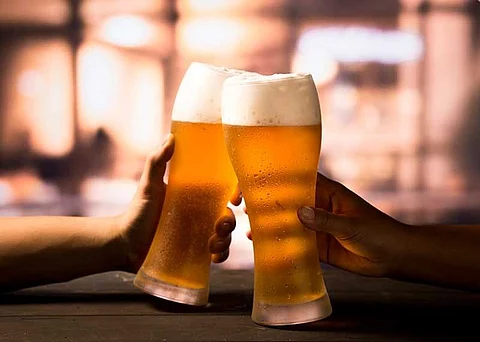

THE City Government of Davao will impose a "one strike policy" on establishments caught violating the rules on serving alcoholic drinks.
Davao City Mayor Sara Duterte-Carpio ordered this through Executive Order 50-A on September 22, where the Vices Regulation Unit (VRU) and the barangay officials are tasked to monitor establishments for possible violations.
The VRU and the Barangay Council will conduct rigorous surveillance in all restaurants, fast-food, sari-sari stores, and other establishments covered by the EO. They will also act for the closure of an establishment when they document even a single violation.
The new EO was issued with additional guidelines, especially on the serving quantities of alcoholic and intoxicating drinks.
Under the new guidelines, Duterte-Carpio clarified the definition of "serving" as the quantity of items served to one customer.
The EO is in accordance with Section 3 of the Department of Trade and Industry (DTI) Memorandum Circular 20-39 Series of 2020 where it states that a maximum of two servings of alcoholic beverages is allowed in restaurants and food businesses.
In the guidelines, customers and business establishments are allowed the selling and serving of alcoholic and intoxicating drinks.
For beer, two bottles or cans can be served provided that a bottle or a can is not more than 400 milliliter (ml).
Cocktail or mixed drink can be served in two shots or orders, provided that one shot or order shall not be more than 200ml.
Hard drinks and all other drinks with alcohol shall be allowed to be served in two shots and order provided that one shot/order should not be more than 100 ml.
The guidelines state that beyond the maximum volume of two servings, orders, or shots per customer shall not be more than 800ml for beers, 400ml for cocktails, and 200ml for liquor and all other drinks with alcohol.
The mayor also noted Section 6 of the EO that other establishments whose names include the word "bar" but the primary business is not serving liquor such as videoke bars, restaurant bars, etc. are allowed to open. These establishments are also subject to the serving limit by the DTI and Section 5 of the EO.
The EO also clarified that there is no limit to the selling of beer and liquor in wholesale establishments, sari-sari stores, groceries, supermarkets, and other similar establishments and the selling of beer or liquor for take-home or take-out, or home delivery.
While sari-sari stores are allowed to sell beer and other alcoholic drinks, they cannot serve these within their premises to avoid mass gatherings. They are also prohibited from allowing people to converge, to have liquor drinking sessions (inuman shooting), conduct meetings and discussions or stand-by within, in front, or around their premises.
Duterte-Carpio officially lifted the 24-hour liquor ban through EO 50 on Monday, September 21.
But it was clarified in the EO that even though the 24-hour liquor ban has been lifted, the existing liquor ban of the city remains.
According to ordinance 004-13 series of 2013, which amends Ordinance 1627 series of 2014, the selling, serving, or consuming of liquor and any other alcoholic or intoxicating drinks in public shall be prohibited from 1 to 8 a.m.
Despite the loosening of the liquor ban, Duterte-Carpio reiterated her call on all Dabawenyos to never forget to practice the health protocols against Covid-19.
Customers in the restaurant, fast food, and other establishments are reminded to only remove their face mask when eating or drinking, the mayor said. Face masks must be worn when talking.
Also, servers should wear a face shield on top of their face mask, maintain at least one-meter distance and handwashing facilities should be available for everyone.
According to DTI's guidelines, beerhouses and similar establishments whose primary business is serving alcoholic drinks (e.g. nightclubs, bars, beer gardens, etc.) are still not allowed to operate under any form of community quarantine.
The city imposed the 24-hour liquor ban in the city on April 6, 2020 during the enhanced community quarantine due to the increasing Covid-19 cases.
Duterte-Carpio said previously that there is a need to gradually allow business establishments to resume operations including businesses in the liquor industry, as the city is now under modified general community quarantine.